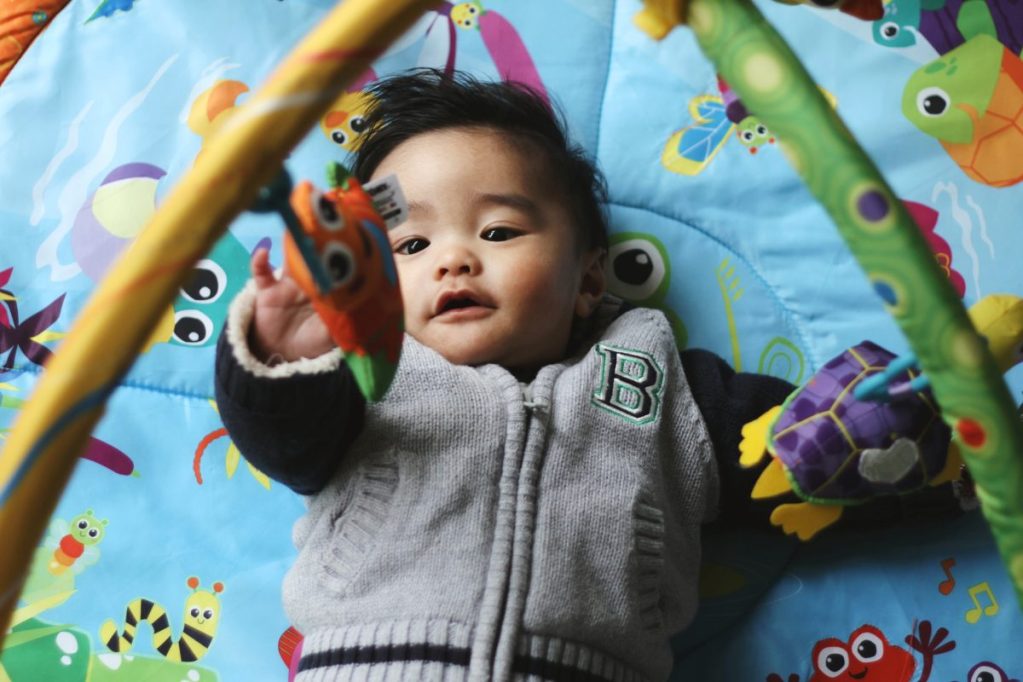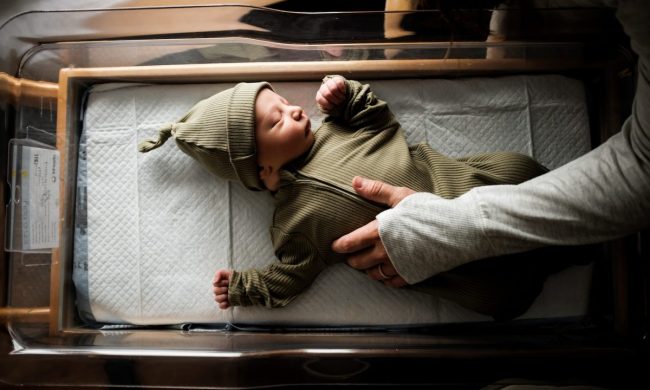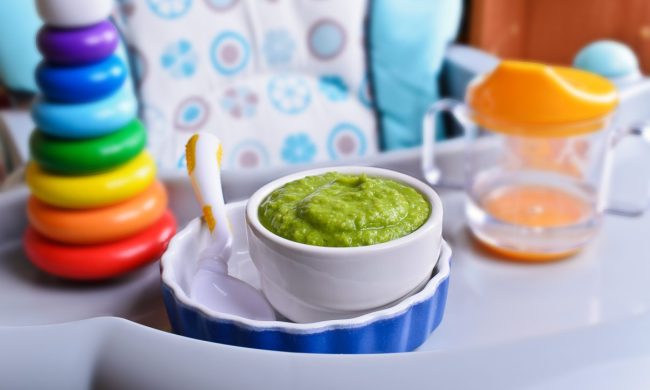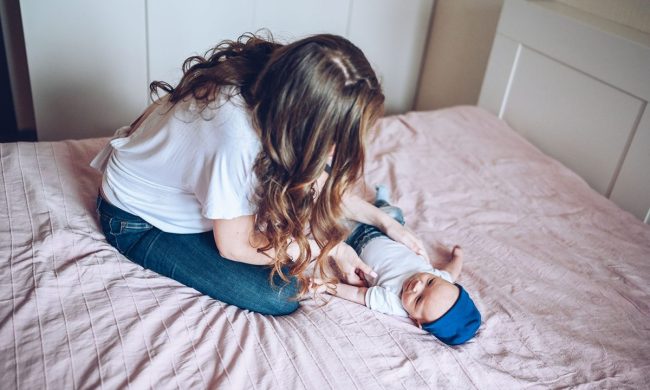It can be tempting to hurry to the toy aisle for the new baby in your life to stock up on all those fun toys, but knowing when babies start actually playing with toys is crucial to spending your money wisely. Babies —from when they are newborns up until their first birthday—are developing many skills in such a short amount of time. (That first year seems to fly by quickly, after all.) If you’re eager to hit up your local toy store to buy your baby something new, we have the scoop on when babies start playing with toys and which types of toys to choose for all those different phases.

How to play with a newborn
During the first few months, your newborn’s biggest source of entertainment is the people around them. At this age, you play a major role in your baby’s playtime. The sound of your voice and your face close by capture your baby’s attention more than any other stimuli in the room. When your baby hears you singing or talking, don’t be surprised if they turn their head to try to find you if you’re not within immediate sight. Since your baby’s vision might still be somewhat blurry during those first days, your face will be the first they recognize.
The best toys for newborns
For now, you’re primarily the one who’s “playing” with the toys with the goal of providing sounds and sights that facilitate learning and comfort for your baby. Some great toys for newborns include:
- Small rattles
- Toys with a variety of textures
- Musical toys
- Unbreakable crib mirrors
Likewise, your baby will gradually develop skills for self-comforting and keeping themself occupied. Thus, a crib mobile that has bright, contrasting colors and swirling, symmetrical shapes offers entertainment that promotes eye development and increased awareness of surroundings.
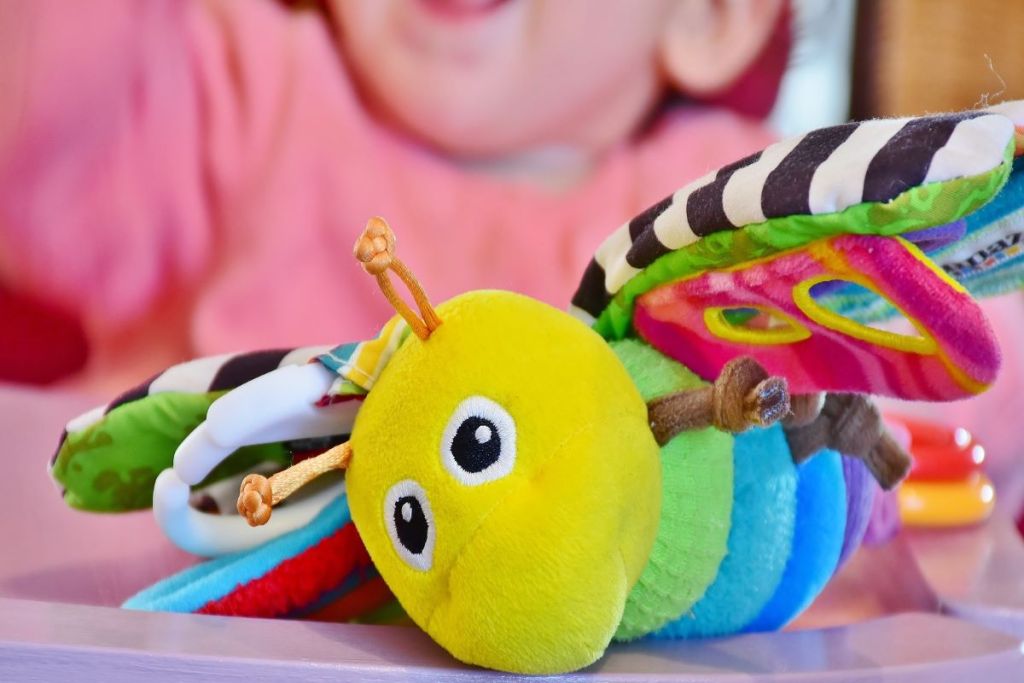
How to play with a 3 to 6-month-old baby
Once your baby grows out of the newborn phase, they experience some major milestones from rolling over to sitting up. Plus, their fine motor skills are developing at a rapid pace along with their ability to make sounds. At this point, toys come more into play, but you can also help your baby by placing their favorite items close enough to grasp. Also, you can teach them cause-and-effect relationships by demonstrating one action that brings about another, like peek-a-boo.
The best toys for young babies
At this point, you’ll be looking for teethers that are brightly colored, textured, and easy to grasp. Any other toys should also be lightweight but still a good size for grasping, cuddling, or even throwing. Some ideas are:
- An O-ball
- Multi-sensory toys
- Cloth books
- Play gyms
- Cloth stuffed animals (remember not to leave them in the crib)
Additionally, when you combine age-appropriate toys with tummy time, your baby will build up the core muscles and fine motor skills. Propping up your baby with a pillow underneath the tummy will allow your baby to use their hands to manipulate the toys.
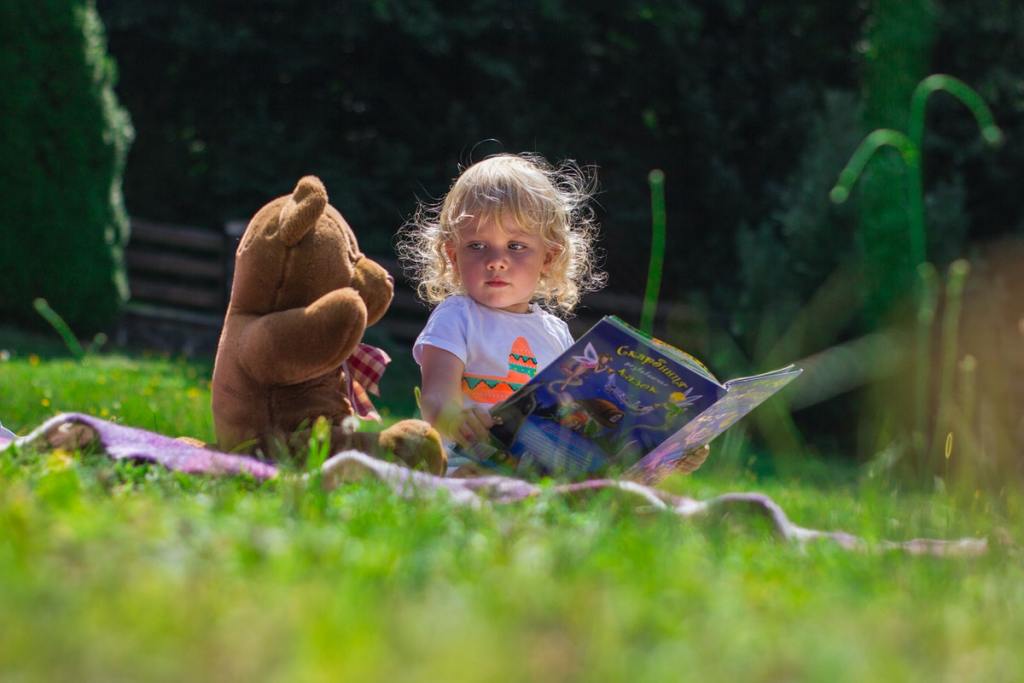
How to play with an older baby (7 months to 1 year)
Keeping up with your baby, who’s now mobile, offers much fun for both of you. However, at this age, your baby will also be accustomed to playing by themself. Nonetheless, the interaction between the two of you is still key to development, not to mention priceless. Since your baby can now sit up, you can roll a ball back and forth. Also, your little architect can start stacking blocks and rolling large, toy cars.
Other fun pastimes include board or cloth books that feature song lyrics, nursery rhymes, or animal sounds which encourage verbalizing and learning different sounds.
The best toys for older babies
Toys that encourage your baby to explore and gain mobility are ideal for this age. And yes, you can expect the toys to get noisier at this age, but the sensory stimuli are critical.
Some of the best toys for older babies include:
- Blocks or stacking cups
- Activity and pounding tables
- Push walkers
- Toy musical instruments
And even with all the bells and whistles that some toys have, your role in playing has not diminished, and your little one will have a blast playing with you or alongside another child.

When do babies start playing on their own?
As exciting as it is to see your baby discovering the amazing world of toys and play, it’s even more exciting when start to learn to play independently. Although it doesn’t mean you aren’t always supervising your child as they play, watching them discover toys and learn how to entertain themselves is a pretty exciting milestone for babies and parents. Donna M. Volpitta, EdD, a childhood education expert and the founder of the Center for Resilient Leadership explained to The Bump why it’s important to encourage your baby to play by themselves. “Solitary play gives them time to wonder and think about their world,” she said. “When they’re constantly engaged in activities that are coached or guided, they don’t have the opportunity to develop these skills.” By around 6 months of age, your baby should be able to entertain themselves for about 5 minutes, and that number grows to about 15 or 20 minutes by the time they reach their first birthday. Of course each child is different so that number can vary, but don’t be afraid to let your baby explore toys on their own, as long as an adult is supervising.
So, when do babies start playing with toys? In short, they might not start playing independently until 4 months and older, but as you can see, every age has its own set of toys that are safe, fun, and even educational. From the newborn phase to the early toddler months, you can always find toys and books that your little one can enjoy.
